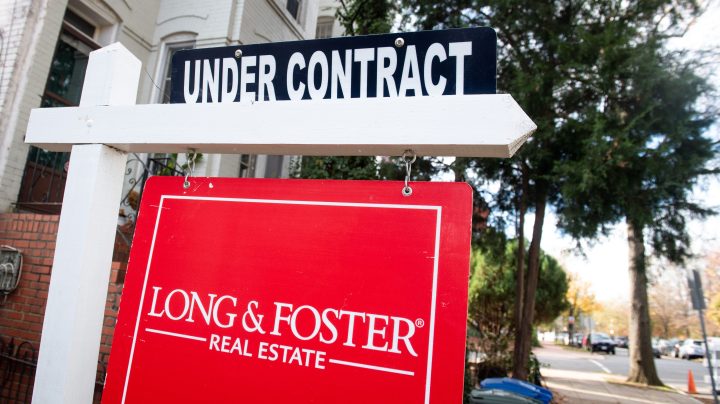
As mortgage rates rise, so have all-cash offers for homes
As mortgage rates rise, so have all-cash offers for homes

After a big drop earlier this year, mortgage interest rates have been ticking up again. The Mortgage Bankers Association said Wednesday that the average rate for a 30-year, fixed-rate mortgage rose to 6.39% last week.
But a lot of the people buying homes in this market don’t actually need a mortgage. Roughly a third of home sales last year, were all-cash deals, according to Redfin. That’s the highest share since 2014, when the market was still recovering from the subprime mortgage and foreclosure crisis. Some cash buyers are institutional investors; some are people selling in expensive markets, taking their proceeds and buying in more affordable ones.
Reporter Emmanuel Martinez and a team at The Washington Post dug into the data. Martinez spoke to host Amy Scott about the all-cash-purchase trend and how it could hurt first-time buyers.
The following is an edited transcript of their conversation.
Amy Scott: So what is going on? Why are so many people able to buy houses with cash?
Emmanuel Martinez: The percentage of homes being bought in cash has been increasing since the pandemic and has only continued to go up. And part of the reason has been due to the pandemic, right? We’ve seen wealthy people get wealthier. That is part of the reason. Some of it has been location. In Frederick and Montgomery counties in Maryland, we were told that it is people who were living closer to Washington, D.C., who wanted more space. And often those places like D.C. tend to be more expensive, and out in the suburbs, like, housing is cheaper, and that was the relationship between what we had heard between these people moving out of D.C. and into Frederick and Montgomery counties. And that has certainly been driving the uptick in homes being bought with cash.
Scott: Absolutely. So what does all this mean for people who are trying to get into this market and looking at interest rates that are much higher than they were just a year ago? How do they compete with someone paying cash or potentially lots of buyers paying cash?
Martinez: I think that is part of the problem, right? And it’s a trend that has continued that often if you are depending on a mortgage or need help from a bank to finance a home, it becomes another barrier for those people to get into the housing market or to sell and buy a home. Often, the people who can buy cash have a leg up because the transaction is done once you pay in cash.
Scott: So, basically, a cash offer is more attractive, because it’s a sure thing, whereas the financing could potentially fall through when someone needs a mortgage.
Martinez: Exactly.
Scott: You had this really striking quote from Lawrence Yun, who is the chief economist at the National Association of Realtors. What did he say about, you know, what this means for kind of society as a whole?
Martinez: When we talked to him, he was talking about the trend increasing and needing cash to buy homes, and that becoming an advantage to get into the housing space. And often, people who have the most cash at hand are the wealthiest, so if it’s becoming a requirement to have cash on hand to buy a home, then that’s essentially saying or flagging that only the wealthy can buy homes. And his perspective on that was, “If only the wealthy are buying homes, something is fundamentally wrong with society.” Like, the way to build wealth in this country is often through homeownership, and so that’s going to create this inability for people to build wealth, especially for those who don’t already own homes. Like, if they can’t get into the housing space, then they’re essentially being financially stuck.
Scott: What do you see as potential solutions? I mean, is there anything that a person who doesn’t have cash can do to better compete?
Martinez: I mean, one of the things that the economist I talked to said is part of the problem is supply. That is true in many areas. Like, I live in California. That’s part of California’s housing story, the lack of supply, especially in some of the most expensive areas in California. So there is no supply for people to buy. That is one aspect. And I think the other thing that is often overlooked is when people sell their homes, they often have the agency to choose who are they selling it too. And so, home sellers do have the agency to select who they are ultimately going to sell their home to.
There’s a lot happening in the world. Through it all, Marketplace is here for you.
You rely on Marketplace to break down the world’s events and tell you how it affects you in a fact-based, approachable way. We rely on your financial support to keep making that possible.
Your donation today powers the independent journalism that you rely on. For just $5/month, you can help sustain Marketplace so we can keep reporting on the things that matter to you.

















